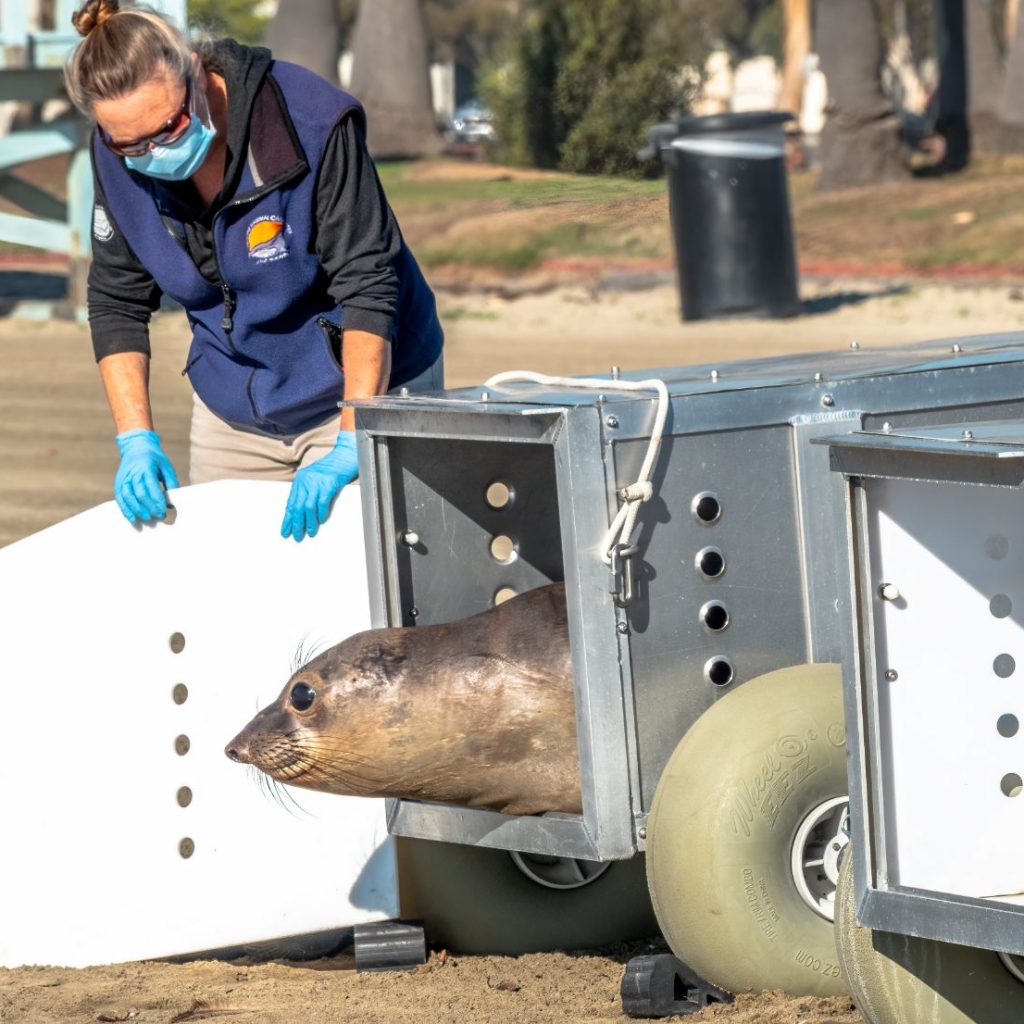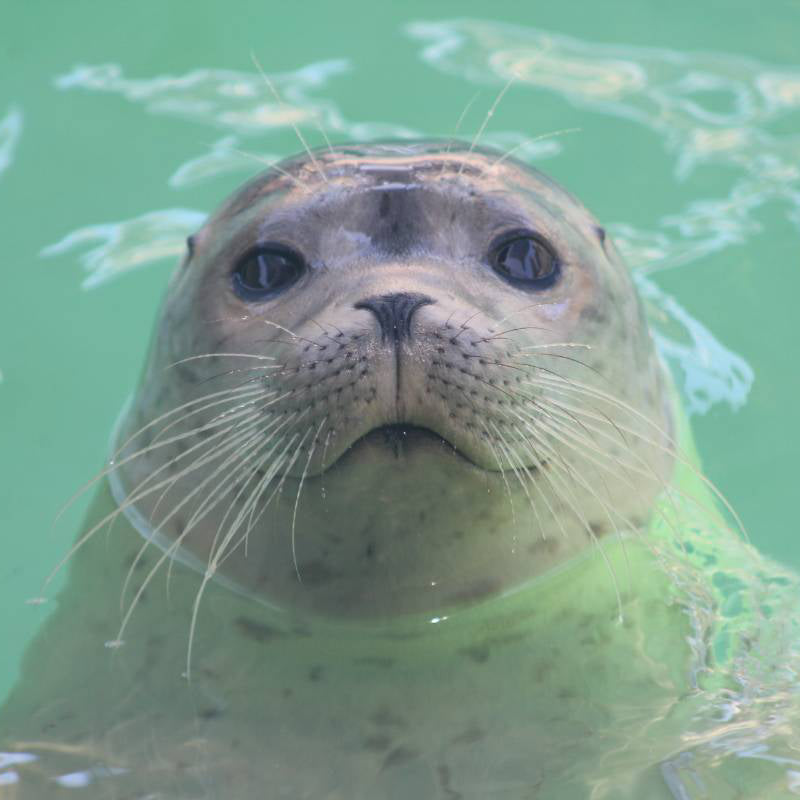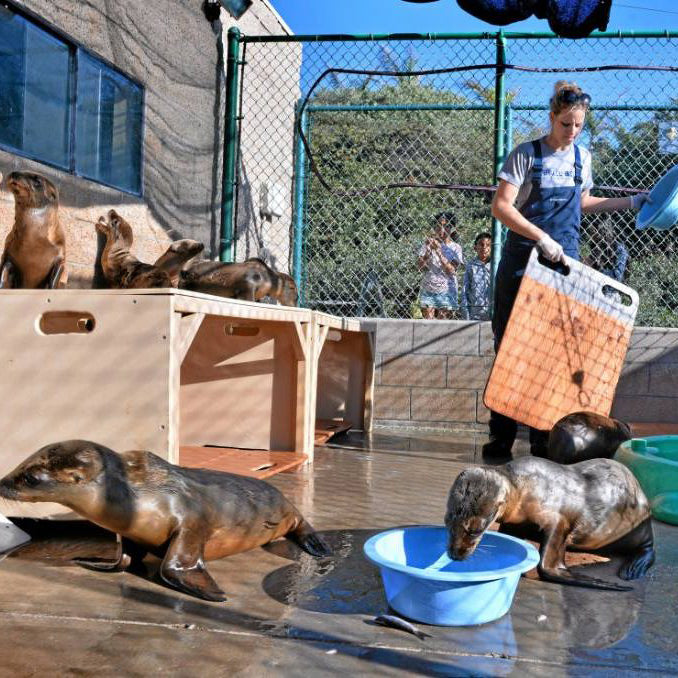Now donating 10% to the Marine Mammal Care Center
Katie PelonShare
I’m proud to announce that 10% of Environerd profits will now be donated to the Marine Mammal Care Center (MMCC) in Los Angeles!
MMCC Work and Mission
The MMCC works to rescue, rehabilitate, and release marine mammals that are injured, abandoned, or sick in Los Angeles County. Their mission is:
“Inspiring ocean conservation through marine animal rehabilitation, education, and research”
To date, over 8,000 marine mammals have been cared for at their facilities. They also work with researchers to contribute to critical conservation studies and open their doors to visitors for educational programs.
Patients
California Sea Lions: These are some of our most visible marine neighbors, often hauling out in large groups on buoys, docks, and some beaches. They are particularly affected by domoic acid (DA) poisoning, a harmful algal toxin that results in brain damage when consumed. The MMCC is currently experiencing a large influx of patients affected by DA and is working around the clock to rehabilitate them.
Pacific Harbor Seals: These are the most common marine mammal on our coasts and can be identified by their smaller size and lack of external ears. Individuals have varying coats, from light tan with spots to dark brown with light rings. Like all true seals, harbor seals have short flippers and move around differently on land than sea lions - another way to identify them. While sea lions can rotate their back flippers to “walk” on all fours, seals rely on a caterpillar-like bouncing motion on their stomachs known as “galumphing”. Abandoned harbor seal pups are common patients at MMCC, although they are far fewer in number than their sea lion and elephant seal cousins.
Northern Elephant Seals: These are the largest of the true seals in the Northern Hemisphere, with mature males weighing up to 4,400 pounds. Elephant seals only haul out onto land twice per year, and the rest of their lives are spent out at sea. During their winter haul out, females give birth to their pups and nurse them for around one month before returning to sea, leaving the weanlings on their own. Elephant seal patients are often weanlings or young seals that have not yet figured out how to feed themselves effectively and have stranded due to hunger. The MMCC helps train them to hunt on their own before release.
How your purchase helps the MMCC
All donations help with providing food, shelter, and medical care to marine mammal patients. Our 10% donations will be allocated to areas of the highest need, which currently includes treating domoic acid patients. Upon their rehabilitation, animals are tagged and released into the ocean, where their continued tracking contributes directly to species conservation research.
Thank you for helping Environerd contribute to the Marine Mammal Care Center!
Photo Credit: Marine Mammal Care Center



